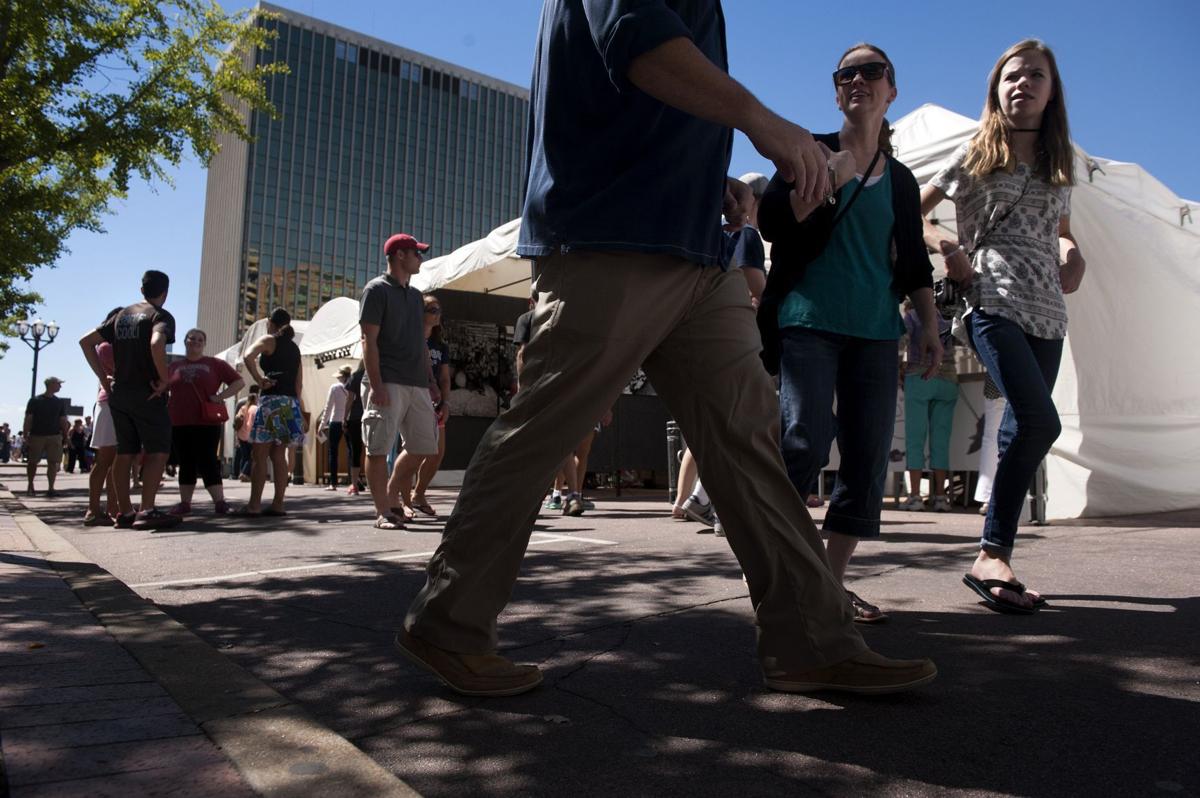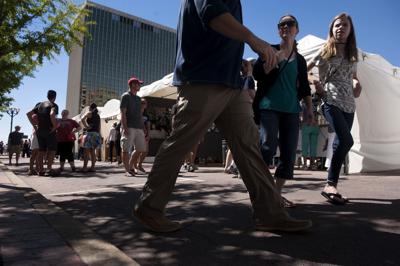░õ│ó┤Ī│█░š░┐▒Ę╠²ŌĆö┬ĀThe Board of Aldermen is considering creation of an entertainment district that officials said could promote a more vibrant and active downtown.
At least one alderman and some residents have concerns about the effort, however, with some fearing parking, noise, drunken driving and other problems.
The proposed entertainment district would be bounded by Maryland Avenue, Forsyth Boulevard, North Bemiston Avenue and North Meramec Avenue. The district could include theaters, music venues, arcades and game rooms.┬Ā
Alderman Ira Berkowitz said the plan would be good for the city.
ŌĆ£We need to diversify, and we can't just cater to older folks who want to eat dinner and then go home┬ĀŌĆö that will be the death knell for this city,ŌĆØ he said.
ŌĆ£We need to invite the younger generation to our city and make them feel comfortable and be entertained. My children have left town and say they won't come back┬ĀŌĆö they say Clayton isn't cool. We're getting a little stodgy.ŌĆØ
People are also reading…
Alderman Joanne Boulton added the city ŌĆ£needs to provide the ability for people to stay in Clayton and play as opposed to going to the Grove or the Central West End.ŌĆØ
At a public hearing Tuesday, City Manager Craig Owens said the district is part of a long-term goal to enhance the vibrancy of the city's central business district.
Any entertainment uses that qualify under the proposed ordinance would have to abide by existing regulations and would be required to obtain an outdoor dining permit to operate any outdoor seating area, Owens said.
There is no plan to modify noise regulations for the district, Owens said. Outdoor amplification of music is not permitted┬Āafter 10 p.m. within 500 feet of residential areas.┬Ā
Mayor Michelle Harris said, ŌĆ£If there is an unmitigated disaster, we have the ability to change (the district plan), but this is worth trying because appealing to a broader, younger group is something Clayton has been lacking, in a way.ŌĆØ
Some residents at the meeting brought up potential problems.
ŌĆ£I'm concerned that entertainment venues could attract people who will be loud after a night of drinking,ŌĆØ Charlie Claggett said.
Peter Smith said, ŌĆ£We don't want Clayton to be an alternative to the Loop or the Grove┬Ā ŌĆö┬Āwe don't see this as an appropriate type of entertainment for Clayton.ŌĆØ He said the addition of venues with drinking ŌĆ£will allow more people being drunk on our roads and creating disturbances in other ways.ŌĆØ
Jim Kerley said he feared the possibility of underage drinking at places like arcades.
Peter Barkofske, associate general counsel for Graybar, a distributor of electrical supplies, communications and data networking products with headquarters at┬Ā34 North Meramec Avenue, said the company opposes plans for the district, objecting to potential problems with drinking.
Spencer Burke said bringing more traffic to the city could increase problems with pedestrian safety.┬Ā ŌĆ£Even now, it's terrifying to walk across streets, even when people are sober,ŌĆØ he said.
Jane Matoesian, who lives on North Bemiston, said, ŌĆ£We now can hear Cafe Napoli (at Forsyth and Bemiston) from our homes, and, with additional bars, you will only exacerbate the situation.ŌĆØ
But Jennifer Volk praised the effort: ŌĆ£You need to do something to bring these types of businesses to downtown Clayton.ŌĆØ
Owens acknowledged the comments about Maryland Avenue being an important boundary between downtown and the city's northern residential neighborhoods. After Plan Commission hearings, city staff revised the proposed district regulations to prohibit entertainment venues from facing either side of Maryland.
In regard to parking problems, Boulton said that's an issue in all Clayton neighborhoods and that many people, especially those who are younger, regularly use ride sharing.
Berkowitz told residents, ŌĆ£Also, we're not opening a magic door to loud music┬ĀŌĆö we have noise limitations, and, if an establishment violates any of our ordinances, we can close them down,ŌĆØ he said.
ŌĆ£This plan isn't revolutionary┬ĀŌĆö we're just looking at another possible element so people can listen to music and otherwise be entertained after dinner. We won't be creating a situation each night where there would be horrible loud music in neighborhoods.ŌĆØ
Alderman Richard Lintz said he feared the change ŌĆ£would provide a different type of establishment that could have a different vibe and encourage more groups to hang out┬ĀŌĆö that's what I worry about.ŌĆØ
ŌĆ£These establishments would just be bars, with maybe some entertainment,ŌĆØ he said.
A final vote is set for May 28.













